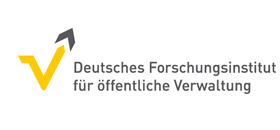Eingeladene Vorträge (wiss. Konferenzen)
Refine
Year of publication
Document Type
- Public lecture (220)
- Lecture (2)
- Other (1)
Language
- German (99)
- English (87)
- Other Language (14)
- Spanish (14)
- French (9)
Is part of the Bibliography
- no (223)
Keywords
- Germania (5)
- Exportkontrolle (3)
- Technologie (3)
- dual-use (3)
- Europarecht (2)
- Friedenssicherung (2)
- Internationaler Frieden und Sicherheit (2)
- Legality (2)
- Nonproliferation (2)
- Völkerrecht (2)
Institute
- Lehrstuhl für Volkswirtschaftslehre, insbesondere Wirtschafts- und Verkehrspolitik (Univ.-Prof. Dr. Dr. h.c. Andreas Knorr) (51)
- Lehrstuhl für Öffentliches Recht, Staatslehre und Rechtsvergleichung (Univ.-Prof. Dr. Dr. h.c. Karl-Peter Sommermann) (33)
- Lehrstuhl für Öffentliches Recht, insbesondere deutsches und europäisches Verwaltungsrecht (Univ.-Prof. Dr. Ulrich Stelkens) (18)
- Lehrstuhl für öffentliches Recht, insbesondere allgemeines und besonderes Verwaltungsrecht (Univ.-Prof. Dr. Jan Ziekow) (8)
- Lehrstuhl für Öffentliches Recht, insbesondere Europarecht und Völkerrecht (Univ.-Prof. Dr. Wolfgang Weiß) (7)
- Lehrstuhl für Politikwissenschaft (Univ.-Prof. Dr. Stephan Grohs) (4)
- Lehrstuhl für Hochschul- und Wissenschaftsmanagement (Univ.-Prof. Dr. Michael Hölscher) (2)
- Lehrstuhl für Sozialrecht und Verwaltungswissenschaft (Univ.-Prof. Dr. Constanze Janda) (1)
- Lehrstuhl für Wirtschaftliche Staatswissenschaften, insbesondere Allgemeine Volkswirtschaftslehre und Finanzwissenschaft (Univ.-Prof. Dr. Gisela Färber) (1)
- Lehrstuhl für Öffentliche Betriebswirtschaftslehre (Univ.-Prof. Dr. Holger Mühlenkamp) (1)
In the presentation, I analyse how the argument concerning constitutional (national) identity has been used in some EU Member States in order to evade international obligations and justify illiberal reforms.
Vorstellung des Jugend-Checks im Rahmen der Session "Legislative Processes: How a law is created and understood"
YES Forum and IEKEP Policy Event: "What language does the EU speak? EU Literacy and European Citizenship: Frameworks for Dialogue and Skills Enhancement"
Paging Doctor Know-it-all
(2023)

